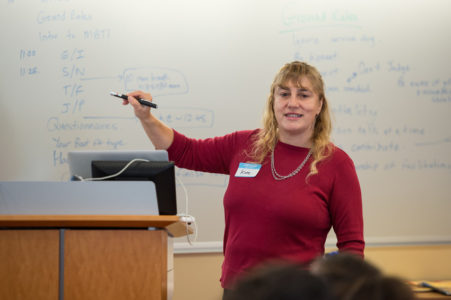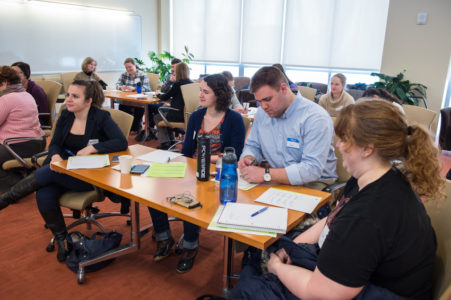The Myers-Briggs Type Indicator (MBTI) is a popular method for people to learn more about themselves. The MBTI tries to assess preferences in each of four dichotomies: Extraversion or Introversion; Sensing or Intuition; Thinking or Feeling; and Judging or Perceiving. Results from the assessment, which consists of a series of straightforward questions, provide a 4-letter code that describes one’s personality profile based on the interactions of these preferences.
Dr. Kate Lewis, Associate Professor in Biology, uses this assessment in her lab group to help the members work more effectively as a team. Last week, EMPOWER trainees and STEM graduate students participated in an MBTI workshop that was led by Dr. Lewis. In this event, co-sponsored by Syracuse University’s Women in Science and Engineering (WiSE), the students learned more about each of the personality types and identified what their own preferences are. Throughout the workshop, Dr. Lewis stressed that there is no ideal personality type and that the MBTI measures preferences only and does not measure trait, ability, or character (myersbriggs.org).
Overwhelmingly the students really enjoyed learning more about themselves and agreed that exercises like this can help with understanding group dynamics, which are so essential for collaborative projects. Amanda Schulz, a PhD student in Earth Sciences, said “I really enjoyed the workshop. I only wish that it had been longer than three hours!”
More information about the Myers-Briggs Type Indicator can be found on their website (myersbriggs.org).
More information about Syracuse University’s Women in Science and Engineering (WiSE) can be found at suwise.syr.edu

